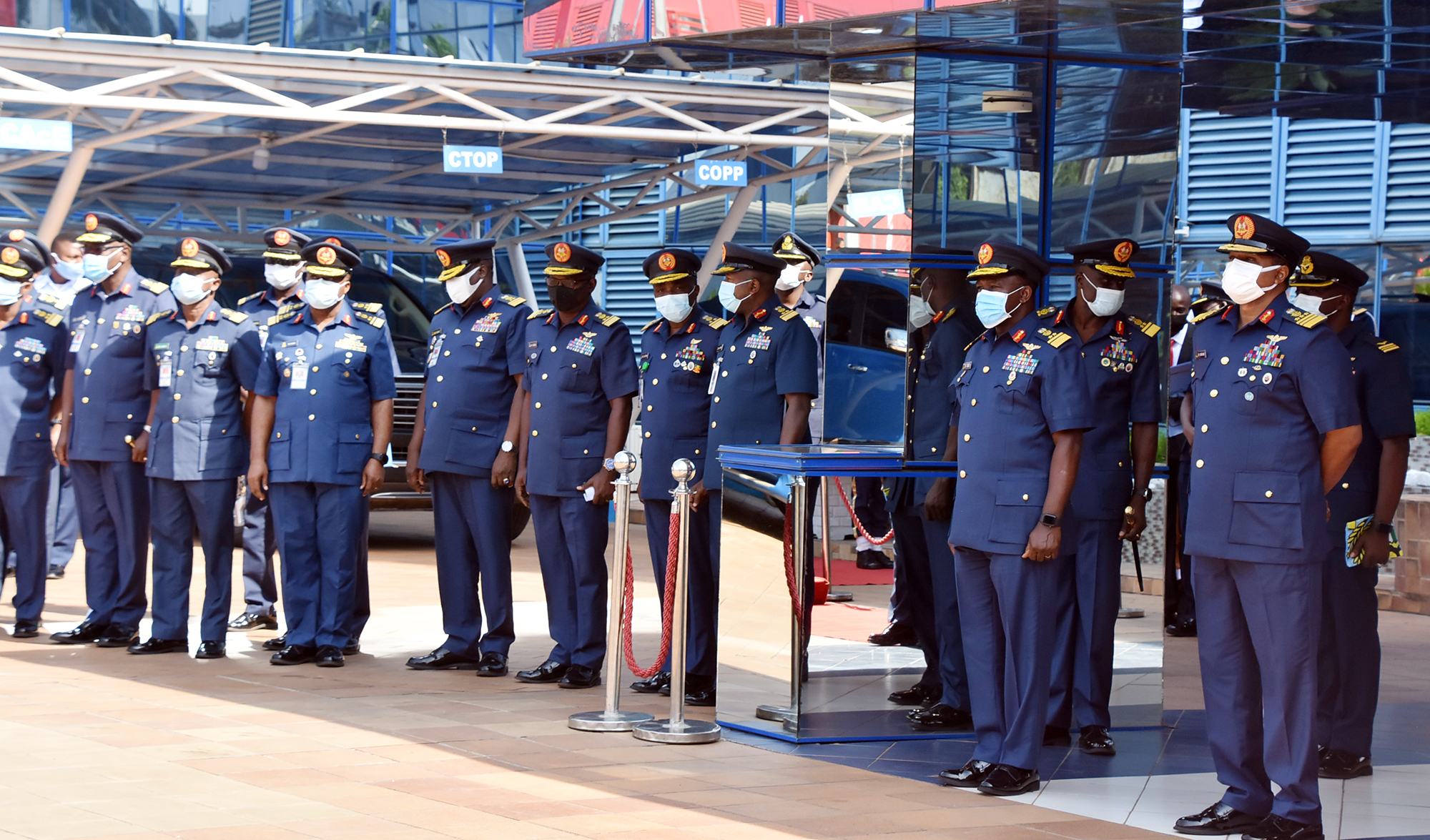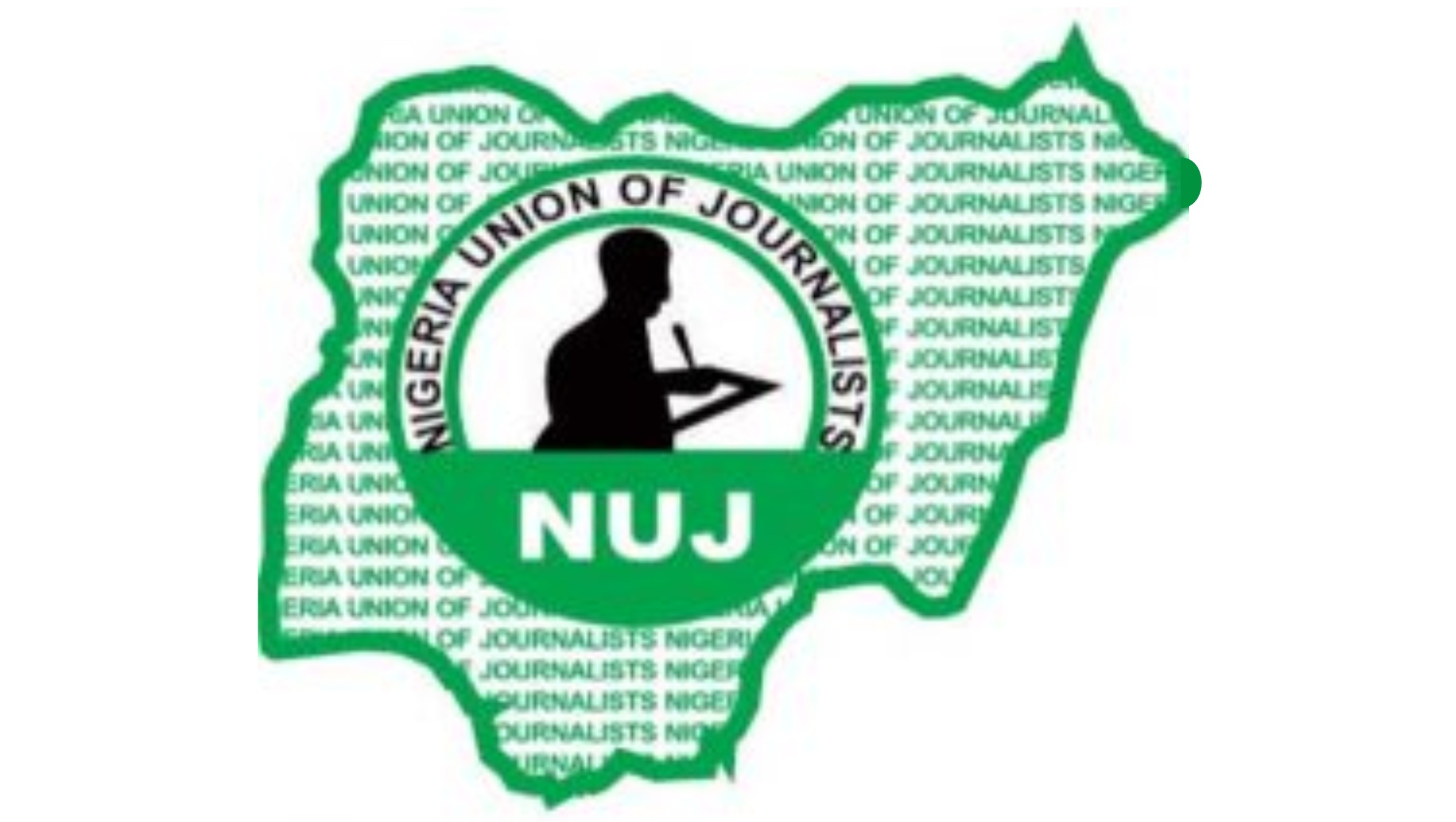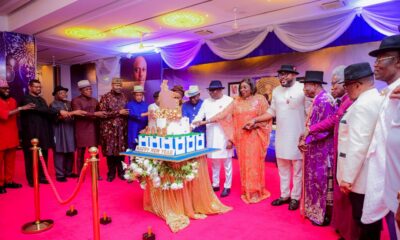Editorial
Buhari’s New Service Chiefs

At last, Nigerians finally heaved a sigh of relief on Tuesday, 26th January 2021, with the “resignation” and eventual retirement of the old service chiefs and the appointment of new ones. The clamour for the change of the service chiefs dates back to over three years ago when insecurity began to take a turn for the worse.
Nigerians of all shades and, most recently, the National Assembly in its resolution, had called for the sack of the former service chiefs. The call for this change was not based on the fact that insecurity would automatically disappear with the appointment of new service chiefs, but that the appointment would engender new ideas, strategies and generally invigorate the fight against it.
President Muhammadu Buhari came short of telling Nigerians the truth when he told the new service chiefs, “We promised to secure the country, revive the economy, and fight corruption. None has been easy, but we have certainly made progress.” The reality is that Nigeria has regressed in security under Buhari, a retired army general. The change will only come when the President understands the problems and the task ahead
The new military heads include Major-General Lucky Irabor, (Chief of Defence Staff), Major-General Ibrahim Attahiru, (Chief of Army Staff), Rear Admiral Auwal Gambo, (Chief of Naval Staff) and Air Vice Marshal Isiaka Amao (Chief of Air Staff). These officers have to act proactively and must understand that to whom much is given, much is expected.
Names of the nominees should immediately be forwarded to the National Assembly for confirmation as required by the law. Next, the Service Chiefs must assess the situation correctly, map out a comprehensive strategy, appoint competent field commanders and implement. Decisive, intelligent political leadership is essential to ending the 11-year-old terrorism nightmare.
But the choice of Attahiru comes as shock to many. At a time, he was the Theatre Commander of the Operation Lafiya Dole until he was sacked in 2017 for alleged incompetence. Buratai fired him from the frontlines in December of 2017 after he failed to meet a July 2017 deadline to deliver Boko Haram leader Abubakar Shekau dead or alive within 40 days.
Under Attahiru’s watch, suicide bombings and attacks on military formations were on the rise. Barely a month after he assumed office, Boko Haram insurgents attacked Maiduguri, the Borno State capital. The question is, how will the new army chief deal with the insurgency in the North-East having reportedly failed to do so three years ago?
For some time now, the North-Eastern states of Borno, Yobe and Adamawa have been under frequent attacks by the Boko Haram insurgents and their more vicious variant, Islamic State West Africa Province (ISWAP). Some local governments had reportedly been taken by the brutal sect. The hitherto serene North-West has become a haven for bandits and extreme Islamists. Niger State in the North-Central is increasingly being infiltrated by extremists. The entire country is awash with guns and put under persistent threats.
In the last five years, the country’s security headache has moved from the insurgency in the North- East to banditry in the North-West, killer herdsmen in the North- Central and kidnappers in the south and other parts of the country. Our highways have become high-risk zones as travelling vehicles are daily waylaid and passengers either killed or kidnapped for ransom.
Even our military bases have not been spared as Boko Haram has repeatedly attacked them and carted away weapons. The most embarrassing security breach occurred recently when about 344 schoolboys were abducted from their school in Kankara, Katsina State, the very day President Buhari arrived in the state for a private visit.
Currently, our forest reserves and farms are as unsafe as there is constant news of killings, maimings and rapes therein. Also, there have been a series of reports of our soldiers in the frontlines being ambushed and mercilessly slaughtered by Boko Haram fighters. These have been occasioned by leakage of strategic information about the troops’ movements by renegade soldiers and their collaborators.
With these, it is obvious that the service chiefs have their work already cut out for them. The expectations of Nigerians are high and the reasons are not far-fetched. The nation has tarried on this knotty issue of insecurity for too long. Therefore, we join other Nigerians in suggesting that a timeline should be given to the service chiefs on when to end the menace.
The new appointments, in effect, means a renewal of hope, that things would change for the better. After all, they are all tested generals. Yet expertise is not enough. To succeed in their assignment, the government must address the welfare of the fighting troops. While military service is a national sacrifice, it is not a suicide mission. Not giving soldiers the tools to fight and dismissing them when they complain is not only unfair, it is unjust.
In the current phase of the war against insurgency, food and other welfare items are reportedly sometimes rationed, besides issues of outstanding payments and entitlements to families of fallen officers and men. This is not to mention guns and ammunition vital for the successful prosecution of any war. Therefore, all old weaknesses must be remedied and new strengths added to the fighting force.
When countries face serious threats, bold leadership, a firm hand on the levers of power and competence are required for survival. Buhari has to muster these qualities to give meaning to his new appointments. Many Nigerians believe that the retiring military chiefs faltered primarily because the President simply did not take charge and give effective direction. He can now make amends.
The exigencies of the moment demand that the service chiefs hit the ground running. Nigerians, buffeted on all sides by insurgency and banditry expect these evils to end. We think that the government should invest more in technology in tackling the twin problem of insurgency and banditry. This should be complemented by the strong will and determination that the new security chiefs are expected to bring to bear on their assignment.
Editorial
A New Dawn For Rivers’ Workers

Workers in the Rivers State civil service have been eulogising Governor Siminalayi Fubara for delivering on his promise to implement a new minimum wage of N85,000, which was reflected in the salaries paid for November. This increase is N15,000 higher than the national minimum wage of N70,000. This represents not only an enhancement in the financial welfare of civil servants but also a recognition of their hard work and dedication to public service. The raise has been met with widespread jubilation among the workforce, who have long advocated for a better wage to cope with rising living costs and economic challenges.
As the news spread, offices filled with laughter and sigh of relief, as employees exchanged stories of how this financial boost would positively impact their families and dependants. The new minimum wage is not just a number; it symbolises the government’s commitment to improving the standards of living for civil servants and fostering a more equitable workforce. Many workers expressed their gratitude for the governor’s timely intervention, highlighting how important it is for public servants to feel valued and adequately renumerated.
Governor Fubara’s decision is expected to reinforce morale within the civil service, fostering greater productivity and dedication among employees who contribute significantly to the state’s development. With the new wage in place, there is a renewed sense of optimism among civil servants, who now feel more empowered to serve the government and the citizens with greater enthusiasm and commitment.
The Governor had declared an increase in salaries for state workers, emphasising that this adjustment is not only a reflection of the government’s commitment to improving the welfare of its employees but also a strategic move fueled by the state’s enhanced Internally Generated Revenue (IGR). He assured workers that the financial backing for this increment is sustainable, stemming from the state’s focused efforts to bolster revenue through various initiatives, including tax reforms and enhanced efficiency in public service delivery.
Furthermore, the governor’s promise of funding the increment solely through increased IGR signifies a commitment to fiscal responsibility and transparency. It reassures the people that the government is proactively managing resources while investing in their future. As the state continues to explore opportunities for revenue enhancement, Fubara’s administration remains focused on ensuring that these initiatives translate into tangible benefits for the workforce, ultimately fostering a more motivated and dedicated public sector.
The decision by Fubara to be the first in Nigeria to implement the new national minimum wage is a commendable step that reflects a proactive approach to governance and an understanding of the pressing needs of the workforce. In an economy where many families struggle to make ends meet, especially in the face of rising living costs, this enterprise will improve the quality of life for workers and also set a precedent for other states to follow.
In recognising the various drives and support provided by Fubara’s government, it is necessary that the workers reciprocate by embodying a spirit of productivity and commitment to the current administration’s goals. They should align their daily operations with the administration’s objectives to enhance effectiveness and foster an environment of collaboration and trust. This reciprocal relationship can lead to innovative solutions and efficient service delivery, ultimately benefiting the state and strengthening public trust in government institutions.
Surprisingly, despite the political challenges the government has been navigating, alongside the myriad of ambitious projects it is embarking on, it has managed to raise funds to implement a minimum wage of N85,000 This achievement reflects a commendable level of resilience and resourcefulness within the government’s fiscal strategies. In a nation often marred by economic volatility and political discord, finding a way to sustain and even elevate the livelihoods of its employees is no small feat.
Workers in the state have truly found themselves in a remarkably advantageous position under this administration, especially when compared to the previous regime. The immediate past government’s blatant refusal to implement the minimum wage of N30,000 left many employees disheartened and struggling to meet their basic needs. What was even more disconcerting was the absence of meaningful negotiations with labour representatives, leaving workers feeling unheard and undervalued. In contrast, the present administration has prioritised dialogue and engagement with labour unions, recognising the importance of fair wage for workers’ contributions to the state’s economy.
With the current government’s commitment to improving wages and working conditions, it is clear that a major shift has taken place. This renewed focus on the welfare of workers empowers them and instils a sense of hope and optimism for the future, as they can now look forward to a more equitable and supportive work environment. Ultimately, the ongoing trajectory suggests a promising era for labour relations in the state, one where workers are valued and their rights upheld.
Siminalayi Fubara has consistently demonstrated his dedication to workers’ welfare since taking office in May last year. Unlike his predecessor, who left many employees feeling overlooked and unsupported, Fubara wasted no time in addressing the longstanding stagnation of promotions that had plagued the workforce for eight years. He took further steps towards financial justice by initiating the long-overdue payment of gratuities that were neglected during the last administration.
Similarly, we urge the governor to take another step forward by reviewing the stipends received by pensioners. The current pension amounts have become woefully inadequate, leaving many of them who dedicated their lives to public service struggling to make ends meet. These dedicated individuals who have contributed to the development of our dear state now find themselves in a precarious financial situation, receiving stipends that are alarmingly low and insufficient to cover basic living expenses. The rising cost of living has rendered their pensions nearly meaningless. Therefore, a comprehensive reevaluation of these stipends is a required measure to ensure that those who have served our state with honour can live their remaining years with dignity and security.
Editorial
Another Look At Contributory Pension Scheme

In a report from the National Pension Commission (PenCom), it was disclosed that only 26 states in Ni-
geria have implemented the Contributory Pension Scheme (CPS), two decades after the Pension Reform Act (PRA) 2004 was passed. The report highlights the inconsistent espousal of the CPS across states, with some states partially adopting the scheme, others not yet participating, and some facing challenges in getting the bill approved in their state legislative assemblies.
In 2012, the Rivers State Government, under the leadership of former Governor Chibuike Rotimi Amaechi, embarked on a critical initiative by enforcing the Contributory Pension Scheme. This strategic move aimed to establish a sustainable pension system by requiring contributions from both the employer and the employee. The arrangement was designed to ensure that employees have a secured and reliable source of income post-retirement, fostering financial security and stability for the workforce.
Following the introduction of the plan, the government adopted a three-year transition that aimed to fully implement the scheme by 2015. During this transition period, the authorities focused on educating both employers and employees about the benefits and responsibilities of the CPS. This included workshops, seminars, and public awareness campaigns to ensure that all stakeholders were well-informed about the scheme.
The creation of the CPS represents an important milestone in the ongoing efforts to overhaul and enhance the state’s pension system, aiming to establish a more robust and secure retirement savings framework for its workforce. The primary objectives of the CPS are to effectively tackle the inherent shortcomings of the former pension system, including limited coverage, insufficient benefits, and financial uncertainty. This strategic framework is designed to ensure that employees receive sustainable and dependable retirement benefits.
However, to ensure fairness and protect the rights of all workers, it is imperative that the effective date of the contributory pension law be prospective, applying only to workers hired in or after 2012. This would allow those employed before 2012 to continue to benefit from the provisions of theDefined Benefit Scheme (DBS), while ensuring that new hirees are subject to the updated pension provisions.
Unfortunately, the pension programme has experienced several challenges. Despite monthly deductions being taken from civil servants’ salaries for their counterpart funding, the government has not fulfilled its obligation to contribute its share. This has impeded the advancement of the scheme and has left many civil servants without sufficient pension arrangements upon retirement.
As a result, the state pension law has undergone multiple revisions to address the issue of retiring civil servants who ordinarily should be covered by the contributory scheme. The amendments have aimed to accommodate these individuals within the DBS which provides a guaranteed level of pension, based on years of service and salary grade level.
The inability of the contributory pension scheme to gain traction has sparked worries about the long-term viability of the state pension system. The absence of government contributions has resulted in a funding shortfall that jeopardises the government’s capacity to fulfil its pension commitments to employees in the future.
Even if the CPS was created to address the perceived shortcomings and lack of sufficient funding of the DBS by combining funds from employers and employees’ contributions to pension funds custodians, retirees under the scheme have not experienced better outcomes than those who retired under the DBS. On the contrary, the execution of the CPS is different from what its advocates led employees to expect.
The complaints regarding the implementation of the CPS are varied and concerning. Retirees are underpaid despite years of dedicated service, with some having served for the mandatory 35 years. Corruption is rampant within the system, and many state governments and employers are not complying with the provisions of the Reform Act, 2014. Labour leaders in the country have criticised the scheme as being anti-workers and retirees welfare. The Association of Senior Civil Servants of Nigeria (ASCSN) has even called for the scheme to be scrapped, labelling it as a “huge fraud.”
Similarly, we urge the Rivers State Governor, Siminalayi Fubara, to completely abolish the contributory pension scheme in the state, as it will not benefit civil servants. We are particularly concerned about the future of workers who will retire under this scheme, especially since the current legislation allowing for the Defined Benefit Scheme will be obsolete in June next year, when the contributory pension law will be effective.
Moreover, the state government is deducting and remitting workers’ contributions to the pension scheme, but failing to contribute their own counterpart funds as required by law. This action is a violation of the rights of contributors as outlined in section 4(1) of the Pension Reform Act 2014. According to this section, employers are mandated to contribute a minimum of 10 per cent of an employee’s monthly salary to their pension fund administrators. Employers are also required to deduct a minimum of eight per cent from the employee’s salary and remit it to the fund administrator.
A government that supports labour rights, like the current one, should not allow workers to suffer from a failed retirement scheme. Workers who are close to retirement age should not have to face unnecessary challenges. The failure of the scheme is evident from the number of agencies that have withdrawn from it. Therefore, it is important for the state leadership to revoke the legislation.
Unlike previous administrations that may have disregarded the experiences of workers in the state, the present government has consistently recognised and appreciated their contributions. The labour-friendly policies of this government have shown its dedication to the well-being of workers. However, the failed retirement scheme remains a critical issue that needs to be addressed.
Editorial
Making Rivers Investment Destination

Determined to make a difference in governance, Rivers State Governor, Sir Siminalayi Fubara, has signed an Executive Order aimed at the establishment of an investment agency. This initiative is poised to coordinate the growing number of enquiries and business interests expressed by local and foreign investors who now consider the state a destination of first choice. The Governor has endorsed Executive Order No. 002 of 2024, establishing the Rivers State Investment Promotion Agency (RIPA), presented by the Attorney General and Commissioner for Justice, Dagogo Israel Iboroma, SAN.
The Governor explained that what he had just done was to give force to one of the recommendations in the report submitted to him by the committee that handled the organisation of the Rivers State Economic and Investment Summit in May. He said it was undisputed that the summit served as a veritable platform to open up the state for economic advancement, adding that the Investment Promotion Agency would be a one-stop shop to handle all related activities seamlessly in the state.
Fubara said: “This will enable investors, when they come in; they won’t need to run around, and maybe, fall into wrong hands or associations that will want to rip them off their investment stakes. With this, they will have an agency that they could go to, liaise with and the agency will have the required answers to whatever it is that they will need to address concerns before it.”
It is common knowledge that Rivers State is rich in natural resources and has a thriving economy primarily driven by oil and gas. However, beyond these industries, there is an abundance of other untapped opportunities in agriculture, tourism, and technology. Yet, despite its wealth of resources, the state has faced numerous challenges such as infrastructural deficits, poor governance in the past, and an economy heavily reliant on oil. As a result, diversifying the economy has become obligatory.
This development is a significant step towards making Rivers State a premier investment destination, with the Agency expected to play a critical role in attracting and retaining businesses, creating jobs, and driving economic growth. Fubara’s action points to the fact that beyond organising the summit, his administration can live up to fulfilling its promise of making Rivers State great again, economically. Any wonder the Governor stated he was not going to end with the signing of the Executive Order alone but would drive it to a conclusive end to achieve the desired fulfilment that Rivers people expected.
The recent inauguration of RIPA’s board marks a watershed moment in the state’s economic trajectory. Fubara’s decision to set up the Agency reflects his administration’s commitment to reversing the economic decline that has plagued the state for years. By appointing a new board, the government aims to inject fresh ideas and perspectives into the establishment, promoting a culture of transparency, efficiency, and accountability.
Entrepreneurial drive is strong in our state, leading to the daily rise of small-scale enterprises and new entrepreneurs. In today’s world, aspiring business owners frequently face challenges like insufficient funding, limited access to information about available resources, bureaucratic obstacles, and a lack of supportive government policies. The current administration should acknowledge these challenges and be dedicated to stimulating a favourable investment climate.
While the Governor’s vision and the Agency’s efforts are critical, achieving sustainable economic transformation will require collective engagement from all stakeholders. The active participation of the community, local businesses, and civil society is essential for the realisation of these goals. Community involvement is pivotal in ensuring that the needs and aspirations of the populace are integrated into the economic policies and initiatives. Creating avenues for public participation not only empowers citizens but also nurtures a shared sense of responsibility towards the development of the state.
The role of the media cannot be understated in this collective effort. The media serves as a watchdog and an informer, ensuring that the government remains accountable and that citizens are aware of opportunities and challenges in the economic landscape. As with any ambitious vision, several challenges may impede the speed to economic transformation in the state. These challenges must be acknowledged and addressed to ensure that progress is sustainable. The government, alongside the Agency, must proactively identify the barriers and develop strategic solutions.
Corruption remains a vital hurdle in many sectors in Nigeria, and Rivers State is no exception. To combat this, the government must demonstrate unwavering commitment to transparency and accountability, ensuring that funds allocated for development are utilised effectively. Also, the state must prioritise infrastructure development, which is foundational to economic growth. By investing in modern infrastructure, the government can lay the groundwork for enhanced productivity and attract local and foreign investors, nourishing an environment conducive to economic development.
Fostering partnerships with international organisations and development agencies can provide valuable resources and expertise. Such partnerships can facilitate technology transfer, capacity building, and investment opportunities that enrich the local economy. Furthermore, the message of economic transformation must be communicated to all residents of the state. Building awareness and consensus around the vision for the state will galvanise support and encourage collective participation in the transformation endeavour.
Undeniably, Fubara’s leadership and vision have given Rivers people hope for a better economic future and his initiative has put the state on the path to realising its full potential. Its commitment to creating an investment-friendly environment is necessary to attract investors and stimulate economic growth. RIPA’s mandate to return Rivers State to its rightful place as an economically viable entity is a challenge that requires collective effort and support.
-

 Featured1 hour ago
Featured1 hour agoWe’ve Only One House Of Assembly Led By Oko-Jumbo, Fubara Clarifies …Signs Into Law N1.188trn Rivers 2025 Budget
-
Business52 mins ago
Agency Partners Foreign Varsity On Climate-Smart Agriculture Advancement
-

 Nation2 hours ago
Nation2 hours agoNUJ backs proposed strike by Lagos-owned media workers
-

 Niger Delta17 mins ago
Niger Delta17 mins agoFouchee Celebrates Asari’s Recognition
-
Niger Delta1 hour ago
NDDC Boss Thanks God For Transformation … Promises More Infrastructural Projects
-
Business50 mins ago
NACCIMA Rep Urges Farmers To Exploit Hybrid Oil Palm Seedlings
-
News2 hours ago
4 Professors, 2 SANs Unveil Book On FUBARAISM …Commend Rivers Gov’s Dev Strides
-

 News1 hour ago
News1 hour agoNothing’ll Stop Governance In Rivers, Fubara Assures …Says We Won’t Allow Anyone Take State For A Ride

